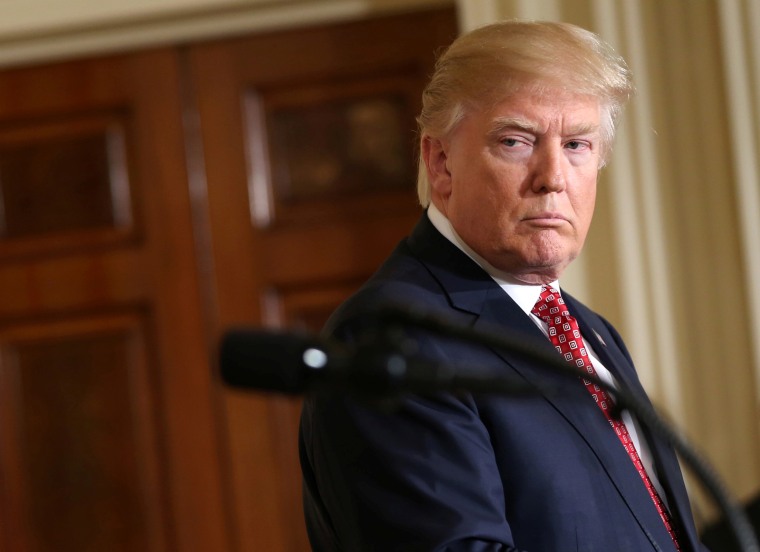A couple of weeks ago, Donald Trump spoke to the National Association of Realtors, who heard the president warn against believing stories based on anonymous sources.
"[T]hey put out false – you know, they say, 'confidential sources,'" Trump said. "Do you ever notice they never write the names of people anymore? Everything is 'a source says...' There is no source. The person doesn't exist. The person is not alive. It's bulls**t. Okay? It's bulls**t.""
Nine days later, the Republican interrupted his trip to Japan to share a story via Twitter:
"Great fun and meeting with Prime Minister [Abe Shinzo]. Numerous Japanese officials told me that the Democrats would rather see the United States fail than see me or the Republican Party succeed - Death Wish!"
One of two things is possible. The first scenario is that Donald Trump really did have private conversations with Japanese officials who expressed their dismay over Democratic officials' indifference toward patriotism.
The other scenario is that the American president, who has an unsettling habit of describing the details of conversations that only occurred in his mind, traveled to the other side of the planet and implicated his Japanese hosts in an attack against his domestic political rivals.
In this same scenario, Trump also relied on anonymous foreign sources -- people who do not exist and are not alive -- and dragged Tokyo into his latest partisan fantasy.
This was, of course, the same presidential trip in which the Republican sided with North Korea's dictatorship against a political leader from Trump's own country.
The unwritten rule about American politics stopping at the "water's edge" faced some unfortunate tests throughout the Obama era. Given that 47 Senate Republicans wrote a letter to Iran, urging Tehran not to trust the United States in the midst of delicate international negotiations, it's safe to say the underlying principle has seen better days.
But Donald Trump seems determined to bury the traditional norm, once and for all.
For its part, Joe Biden's campaign did not let Trump's rhetoric go unchallenged. "The president's comments are beneath the dignity of the office," Kate Bedingfield, the former vice president's deputy campaign manager, said in a written statement. "To be on foreign soil, on Memorial Day, and to side repeatedly with a murderous dictator against a fellow American and former Vice President speaks for itself. And it's part of a pattern of embracing autocrats at the expense of our institutions -- whether taking Putin's word at face value in Helsinki or exchanging 'love letters' with Kim Jong Un."
Team Biden released this statement this afternoon. It could've gone out earlier, but the former vice president's campaign wanted to wait until Trump was back on American soil before criticizing him.
Some, in other words, aren't yet prepared to abandon a sense of propriety.
